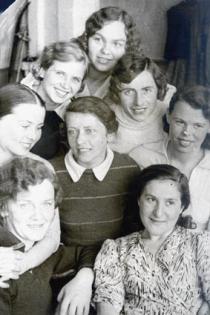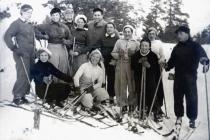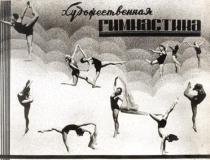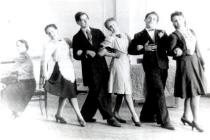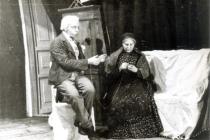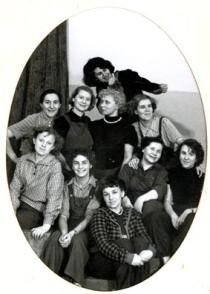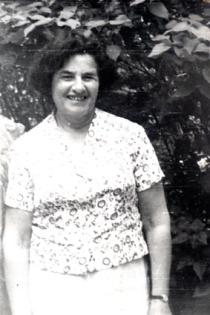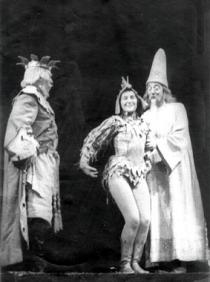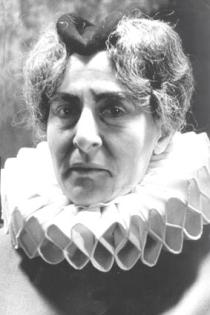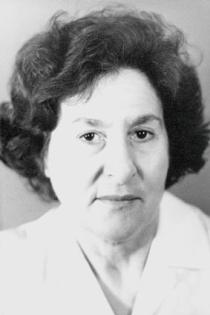This photograph was taken in May 1941. This sort of photographs (collage) was given to every graduate of the College of Physical Culture. It was made for students of different sports specialities. I was in the callisthenics group. This is my last photo taken before the war.
Here I’ll tell you what happened next. Soon after I graduated from the College a letter came to its authorities. It contained an order to send some graduate to Moldova to prepare Moldavian athletes for the parade. As I was the only graduate still staying in Leningrad, they decided to send me. I went to Kishinev. But it appeared to be not so simple. First of all, I went there by plane (and it was for the first time in my life!). For some reason the plane landed in Odessa at a small airport. Till now I remember air in Odessa: fragrant with the delicate scents of heady grass and sea. The pilots felt sorry for me and decided to take me to Kishinev by a small two-seater. It made me so sick! But nevertheless all the time I was looking through the window, bewitched by unfamiliar and fine southern landscapes. My pilot decided to amuse me singing Ukrainian songs. There was nothing special in it and I would have forgotten that song if it did not appear to be prophetical. The song told about a Cossack leaving for the front line. His going away was a sore grief to his beloved. She gave him a scarf to have his eyes covered if he would be killed. Do not forget that it happened on June 14, 1941!
Well, I reached Kishinev and began preparing local athletes for the great event - parade in the Red Square. Basically I taught them dancing. Knowledge I got from Pauline Conner was useful. I lived there like in paradise. I never saw so much food. People used to leave leftovers (for instance white bread!) on their plates! Sometimes they even threw bread away (terrific!). It seemed to me real blasphemy. And what markets, what wonderful fruit they had! One day during my training session a boy ran in and shouted 'Teacher, a bomb fell down over there!' I said 'Easy, easy, it is alarm for instruction.' You see, in Leningrad they often arranged alarms for instruction and occupied citizens by civil defence studies. Later another boy brought the same message. And then we heard Molotov's speech by radio. No doubt: war burst out! I felt responsible for my students and arranged the procedure of sending them home (in fact in Kishinev they gathered athletes from all over Moldova). Then I decided to go to a military registration and enlistment office. [Military registration and enlistment offices in the USSR and in Russia implemented official call-up plans.] Right away I asked them to send me to the front line: I could not imagine another way to live during the war time.
They told me 'We are not able to waste our time talking to a woman. You should go to Leningrad, to the place of your registration.' One of my colleagues (a Moldavian) took me to the railway station. A lot of trains went through Kishinev; all of them were overcrowded - it was a real mess. As for me, I already did not care where to go, I only wanted to change. My friend seized me by the collar and pushed me into the moving train. I fell down on heads of other passengers, but nobody grumbled. The train arrived to Odessa. There I went to a local military registration and enlistment office again. They were glad to see me and said that as far as I was a graduate of the College of Physical Culture, they directed me to the military hospital #411. Injured people were already taken to that hospital. My position was called a nurse, but in fact I did a lot of different work, necessary for the hospital. I both cleaned wards and assisted during operations. I managed to apply knowledge received at my College. I knew both anatomy and traumatology; I was able to make complex bandaging. I mastered all medical procedures very quickly and easily learnt names of medical instruments. I was lucky to work together with a remarkable doctor and a noble person - professor Ghinkovskiy. During the first operation professor Ginkovskiy whispered to the second surgeon 'And does the newcomer know the instruments?' And he got the following answer 'Better than anyone!'

